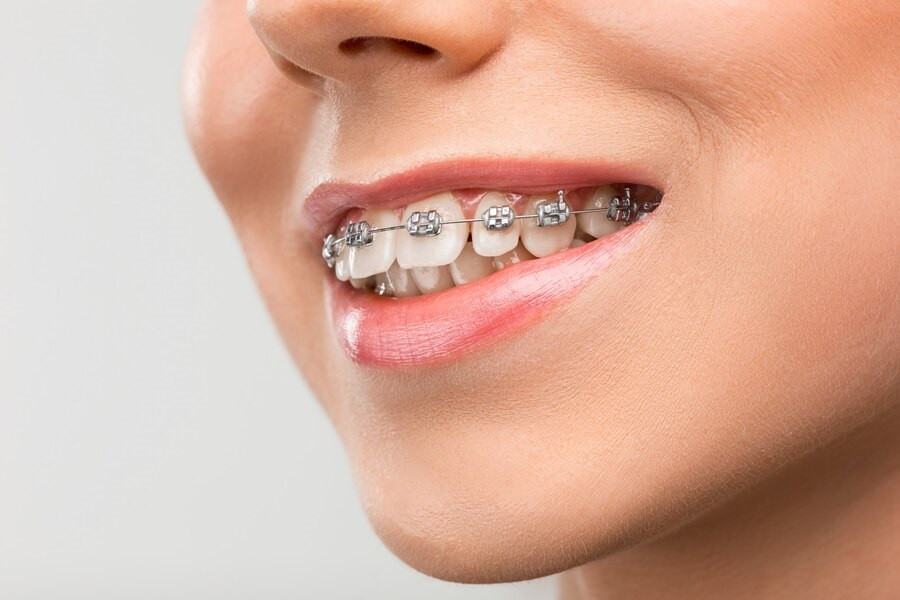Cabut gigi sebenarnya merupakan prosedur umum yang dilakukan untuk mengatasi berbagai masalah gigi, seperti gigi berlubang parah atau gigi bungsu yang tumbuh tidak normal. Namun, tidak semua kondisi memungkinkan untuk segera melakukan cabut gigi.
Beberapa kondisi kesehatan justru mengharuskan Anda menunda mencabut gigi agar terhindar dari komplikasi yang lebih serius. Hal-hal seperti apakah itu? Simak ulasan berikut.
Kondisi yang Menyebabkan Anda Harus Menunda Cabut Gigi
Penundaan cabut gigi sering kali disarankan oleh dokter gigi untuk pasien yang mengalami kondisi tertentu, baik fisik maupun hormonal, di antaranya:
Mengalami infeksi pada gigi atau gusi
Gigi yang berlubang dan mengalami kerusakan parah, sering kali harus dicabut untuk mencegah penyebaran infeksi. Namun, saat gigi sudah mengalami infeksi parah seperti abses gigi atau radang gusi, maka proses pencabutan perlu ditunda.
Mencabut gigi yang sedang infeksi berisiko menyebarkan bakteri dari area yang terinfeksi ke bagian tubuh lain. Infeksi yang aktif dapat menyebar ke aliran darah dan menyebabkan komplikasi serius seperti sepsis.
Baca Juga: Cara Mengatasi Sakit Gigi di Malam Hari
Kehamilan
Beberapa dokter mungkin menganggap cabut gigi saat sedang hamil aman dilakukan. Namun, ada beberapa pertimbangan penting yang perlu diperhatikan untuk memastikan keamanan baik bagi ibu dan bayi.
Prosedur dental seperti pencabutan gigi dapat menyebabkan stres dan kecemasan, yang bisa berdampak pada kesehatan ibu hamil dan bayi. Beberapa jenis anestesi lokal atau obat bius mungkin memiliki risiko atau efek samping yang perlu dipertimbangkan. Dokter gigi harus memilih anestesi yang aman untuk ibu hamil dan bayi.
Ibu hamil disarankan untuk menunda cabut gigi kecuali memiliki kasus darurat, seperti sakit gigi parah yang mengganggu aktivitas, berisiko terjadinya infeksi, atau berisiko terjadinya kerusakan permanen pada gusi dan gigi.
Menstruasi
Selama menstruasi, perubahan hormonal dalam tubuh wanita dapat memengaruhi kesehatan gusi dan jaringan mulut. Hormon estrogen dan progesteron yang meningkat selama siklus menstruasi dapat menyebabkan gusi menjadi lebih sensitif, bengkak, dan mudah berdarah.
Kondisi ini dikenal sebagai gingivitis menstruasi dan bisa meningkatkan risiko komplikasi saat menjalani prosedur dental, termasuk pencabutan gigi.
Baca Juga: Bukan Hanya Karena Berlubang, Ketahui 7 Penyebab Sakit Gigi
Memiliki gangguan kekebalan tubuh
Penderita gangguan kekebalan tubuh, seperti mereka yang menjalani kemoterapi atau mengidap HIV, harus sangat berhati-hati sebelum menjalani prosedur pencabutan gigi. Gangguan pada sistem kekebalan tubuh membuat mereka lebih rentan terhadap infeksi dan komplikasi lain yang dapat muncul akibat prosedur dental, termasuk pencabutan gigi.
Jika gigi mengalami kerusakan yang parah akibat gigi berlubang dan tidak dapat diperbaiki dengan penambalan atau perawatan saluran akar, pencabutan mungkin menjadi satu-satunya pilihan. Namun, sebaiknya cabut gigi memang dilakukan berdasarkan rekomendasi dokter gigi. Konsultasikan dengan dokter kapan waktu yang tepat untuk cabut gigi, khususnya bila memiliki kondisi di atas.
Memiliki pertanyaan lain terkait masalah gigi? Anda bisa berkonsultasi dengan dokter melalui aplikasi Ai Care yang bisa diunduh di App Store atau Play Store.
Mau tahu informasi seputar penyakit lainnya? Cek di sini, ya!
- dr Nadia Opmalina
Mary Anne Dunkin (2023). Pulling a Tooth (Tooth Extraction). Available from: https://www.webmd.com/oral-health/pulling-a-tooth-tooth-extraction
Cleveland Clinic (2021). Tooth Extraction. Available from: https://my.clevelandclinic.org/health/treatments/22120-tooth-extraction
Cleveland Clinic (2023). Abscessed Tooth. Available from: https://my.clevelandclinic.org/health/diseases/10943-abscessed-tooth
Mark Gurarie (2022). What to Expect at Your Next Dental Extraction. Available from: https://www.verywellhealth.com/dental-tooth-extraction-5215782
Niina Rautaporras, et all (2022). Severe infections after teeth removal – are we doing enough in preventing them?. Available from: https://www.ncbi.nlm.nih.gov/pmc/articles/PMC8916597/
Mayo Clinic (2023). Sepsis. Available from: https://www.mayoclinic.org/diseases-conditions/sepsis/symptoms-causes/syc-20351214
Sarah Bradley (2020). What You Need to Know About Tooth Extraction During Pregnancy. Available from: https://www.healthline.com/health/pregnancy/can-you-get-a-tooth-pulled-while-pregnant
Cleveland Clinic (2024). What Do Your Hormones Have To Do With Your Oral Health?. Available from: https://health.clevelandclinic.org/hormones-and-oral-health
Dr. Pippa Vincent, MRCGP (2023). Immunosuppression. Available from: https://patient.info/allergies-blood-immune/immune-system-diseases/immune-suppression












